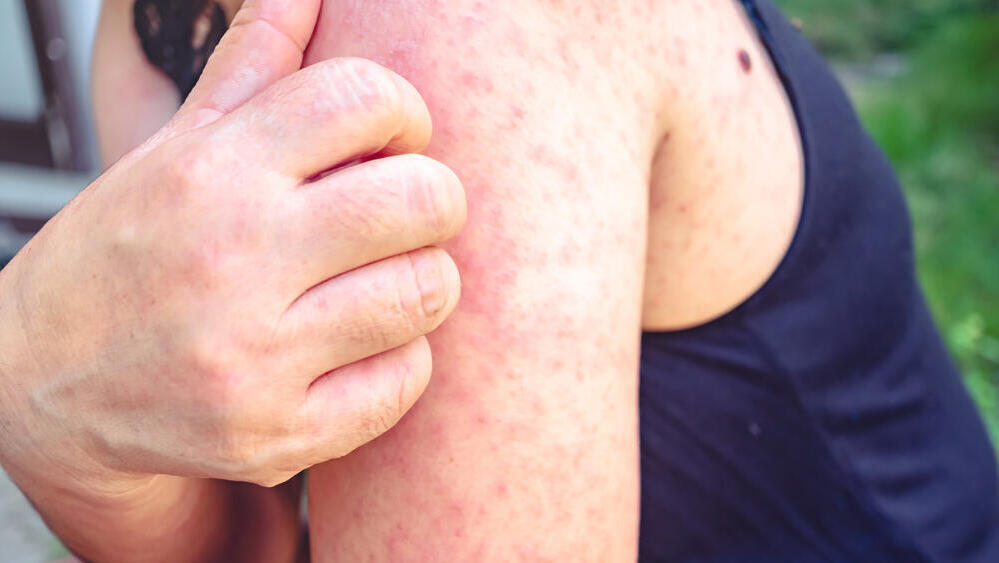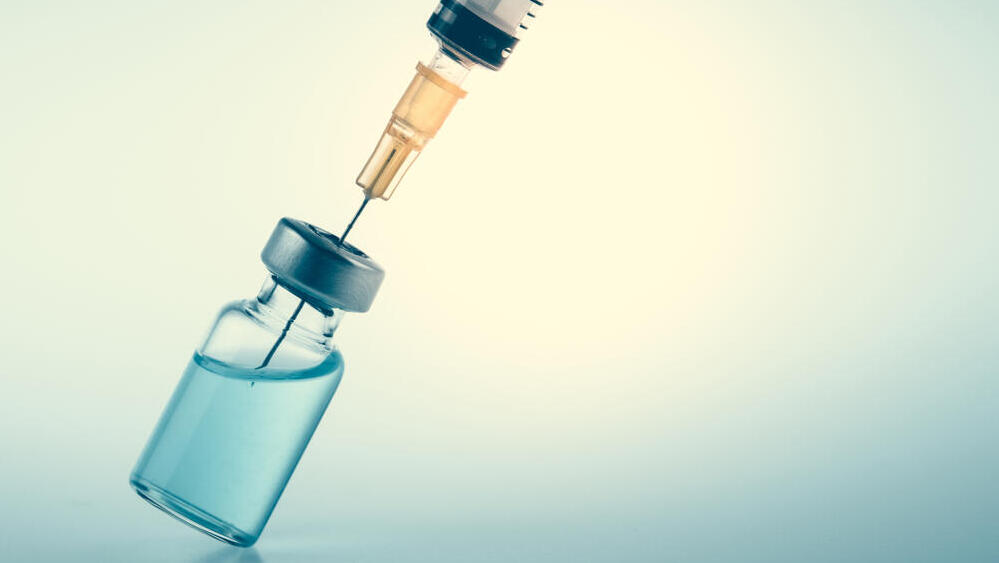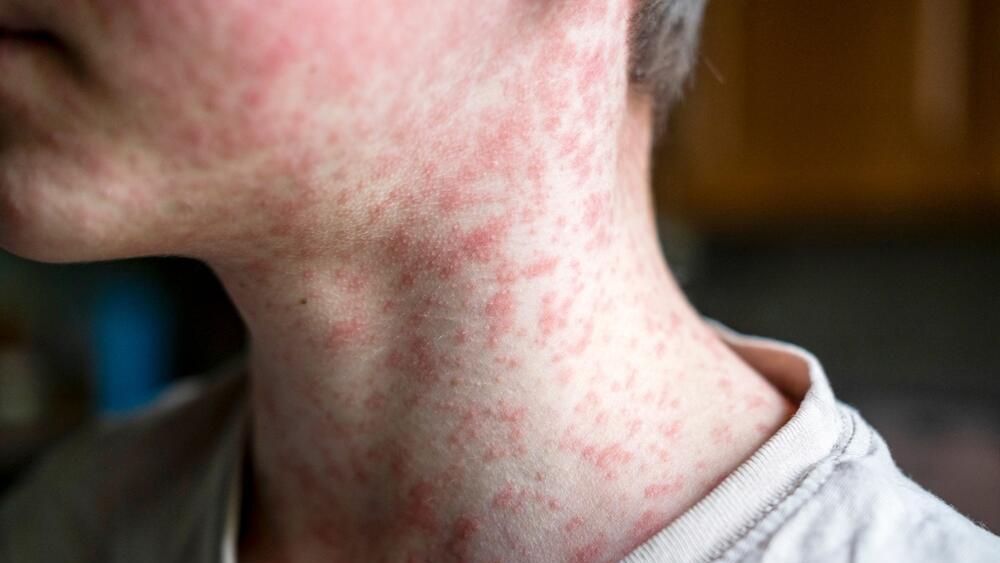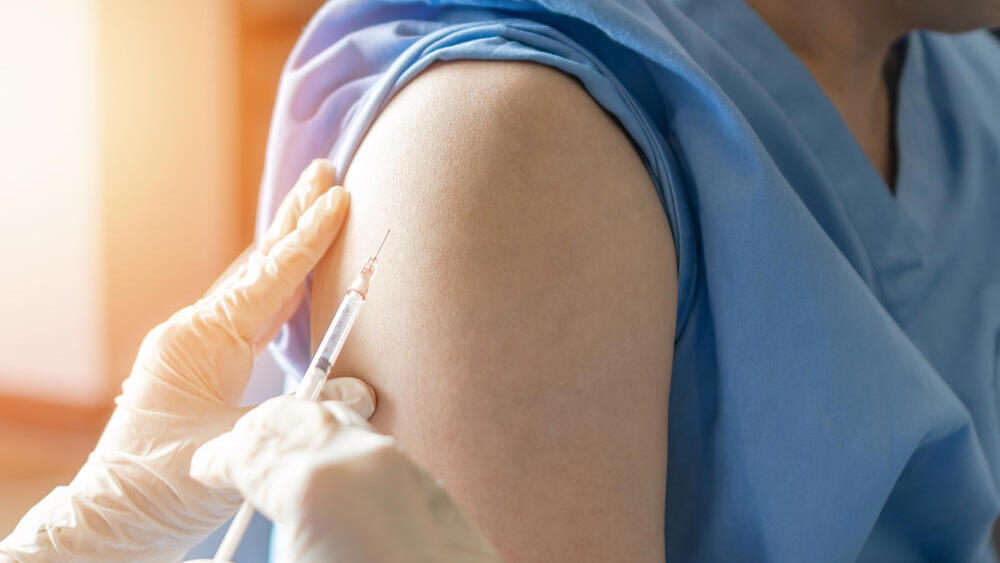Getting your Trinity Audio player ready...
As the U.S. and European countries face a surge in measles cases, senior Israeli health officials warn of a potential outbreak in Israel due to declining childhood vaccination rates.
"Measles is one of the diseases where the risk of an outbreak rises significantly as soon as immunity levels drop," said Dr. Sharon Alroy-Preis, head of public health services at the Health Ministry, told Ynet.
According to 2024 data from the Health Ministry's health intelligence division, the vaccination rate for the first dose of the MMRV vaccine (measles, mumps, rubella and varicella) by age six is approximately 87%, while the two-dose rate for ages 6-18 stands at about 91%. In Jerusalem, however, first-dose coverage is only 79%, with 88% receiving both doses. "This is a concerning figure," Alroy-Preis noted.
Until now, Israel has avoided measles importation thanks to relatively high vaccination rates. However, health officials worry that if measles is introduced into an area with low coverage — such as Jerusalem — it could trigger a widespread outbreak, similar to the 2018 outbreak which resulted in over 4,300 cases and three deaths.
In the U.S. and Canada, measles cases since the beginning of the year have already exceeded the total reported in 2023. The U.S. has confirmed 378 cases so far, mainly in Texas and New Mexico, including two deaths. Of these cases, 95% were unvaccinated or had unknown vaccination status, while only 2% had received both doses.
In Europe, measles cases doubled in 2023 compared to 2022, marking a 25-year high, with 127,350 cases reported — over 40% of them in children under five. In response, the Health Ministry is advising all travelers to ensure they have received both vaccine doses.
In Israel, measles cases have remained relatively stable. Last year, 33 cases were reported, mostly among travelers who contracted the virus abroad. So far this year, three cases have been confirmed, with one more under investigation.
 Dr. Sharon Alroy-PreisPhoto: Health Ministry
Dr. Sharon Alroy-PreisPhoto: Health MinistryAlroy-Preis stressed that while Israel still has relatively high measles immunity, vaccination rates have declined over the years. "In the past, first-dose coverage averaged 96% but it's now down to 90-92%, which is a significant drop."
Vaccine stockpile and preparedness
Health officials stressed that Israel was prepared for a potential outbreak. "We have a robust vaccine stockpile and protocols to accelerate the second dose in outbreak areas, lowering the age from six years to 18 months. We implemented this measure at the start of the war when an outbreak occurred in Tel Aviv," Alroy-Preis said.
According to the World Health Organization, vaccines save approximately four million lives globally each year. However, vaccine hesitancy has been on the rise in Israel and worldwide. Health Ministry data presented at a recent conference at Netanya Academic College revealed a decline in routine immunization rates.
Get the Ynetnews app on your smartphone: Google Play: https://bit.ly/4eJ37pE | Apple App Store: https://bit.ly/3ZL7iNv
The five-in-one vaccine (protecting against diphtheria, tetanus, pertussis, polio and Haemophilus influenzae type B) saw coverage drop from 92% in 2019 to 88% in 2022, weakening children's immunity.
Some of this decline is due to vaccine delays. From 2019 to 2023, the Jerusalem area had Israel's highest rate of delayed vaccinations at 28%, compared to the national average of 15%. There were also significant gaps in adherence to the four-dose schedule for the five-in-one vaccine. While only 5% of infants received the first dose late, 32% were late for the fourth dose.
The cost of declining vaccination rates
The consequences of lower immunization rates are felt most acutely by infants and young children. "My baby would cough until he choked. His face turned purple and blue — it was terrifying," said Mor (full name withheld), whose infant son contracted pertussis (whooping cough) at just two weeks old.
Pertussis is particularly dangerous for infants, as complications can lead to disability or death. Pregnant women are advised to get vaccinated to protect their newborns until they complete the full four-dose schedule in their first year.
Mor, who hadn't been vaccinated during pregnancy, suspects she was infected by a midwife who was coughing in the delivery room. "She unknowingly passed it to me, and since I was breastfeeding, I infected my baby when he was just two weeks old."
The family endured a prolonged hospital isolation period. "Doctors only entered wearing protective suits. It was terrifying. There's no cure — you just watch your baby struggle to breathe and hope he survives. It was an agonizing experience."
Since then, Mor has had two more children and ensured she was vaccinated during pregnancy. "It's a lifesaving vaccine. I wouldn't wish the experience of watching your baby choke on my worst enemy. There's nothing you can do to help them and the helplessness is unbearable."
Addressing vaccine hesitancy
Public attitudes toward vaccination have shifted since the COVID-19 pandemic, with conspiracy theories gaining traction. Anti-vaccine figures have moved closer to the mainstream, exemplified by Robert F. Kennedy Jr., a known vaccine skeptic, serving as U.S. Health Secretary under the Trump administration.
"Wherever there's a lack of strong, science-based messaging about vaccine importance, trust issues worsen, making it harder to address hesitancy," Alroy-Preis warned. "Social media has made everyone a broadcaster, allowing misinformation to spread rapidly and making it nearly impossible to debunk everything."
"It's completely legitimate to ask questions and seek answers," she added, "but it's crucial to rely on credible sources. Many people wouldn’t choose cancer treatment based on social media posts — they'd seek multiple professional opinions. The same caution should apply to preventive medicine."
Vaccine hesitancy isn’t solely due to misinformation. "Our surveys show that while people continue to vaccinate, they're also more exposed to fake news, which increases anxiety. However, that's not the only factor. Large families, particularly in high-birthrate communities, face logistical challenges in keeping up with vaccination schedules," Alroy-Preis explained.
Limited access to well-baby clinics (Tipat Halav) also plays a role. "When high-birthrate areas don’t have enough nurses, appointment availability suffers."
To address this, the Health Ministry has taken steps to improve vaccination rates, focusing on ultra-Orthodox communities. Initiatives include recruiting additional nurses for Jerusalem's municipality and launching a mobile well-baby clinic in Beit Shemesh.
"We’re constantly working on solutions, including potential reforms with the Finance Ministry and health funds. Vaccines save lives and we must maintain high immunity levels to protect our children," Alroy-Preis concluded.





